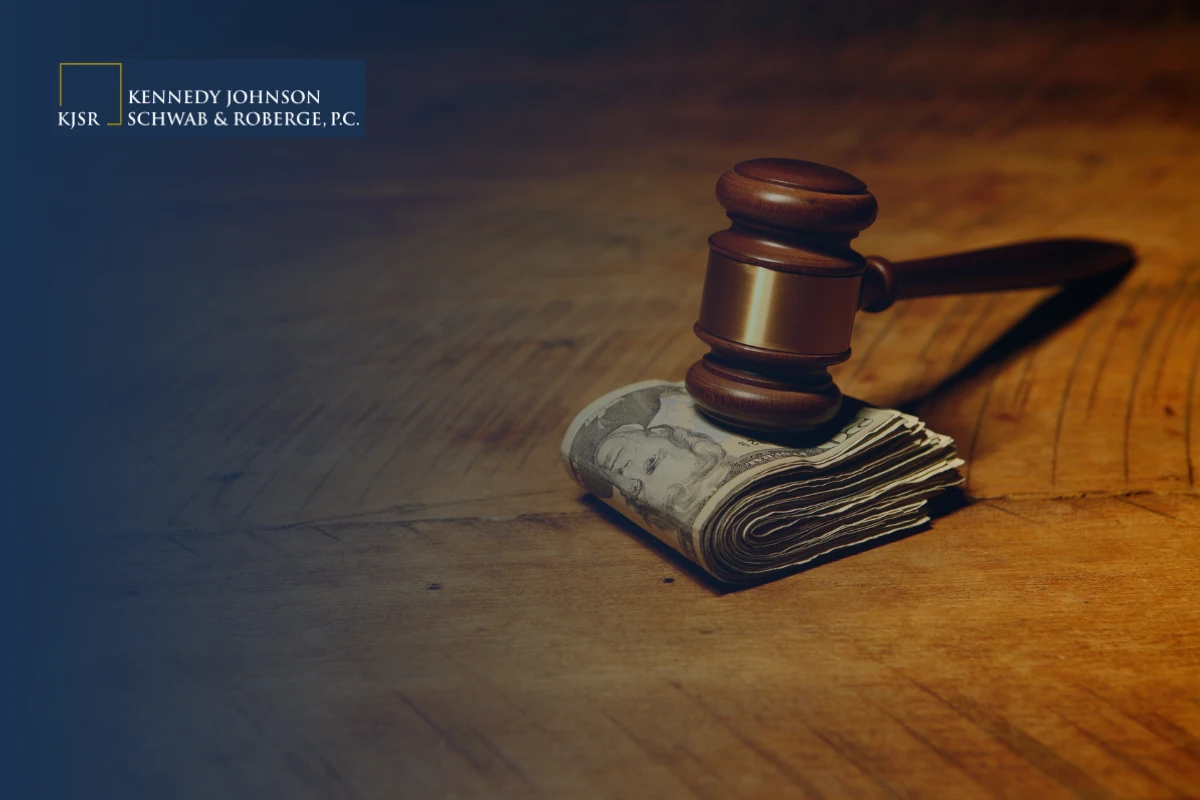Factors Influencing Compensation in Rideshare Sexual Abuse Claims

Founding Partner
“Compensation in rideshare sexual abuse claims is determined by several factors, including the severity of the abuse, any physical or emotional harm you’ve suffered, and the extent to which Uber or Lyft may have been negligent in their screening or oversight of the driver. While every case is unique, compensation can include medical expenses, therapy costs, lost wages, and pain and suffering. It’s understandable to feel overwhelmed, but we’re here to guide you through each step, helping you understand what to expect and fighting for the justice and compensation you deserve.”
Each rideshare sexual assault claim is worth a different amount based on the survivor’s unique circumstances. Some of the most influential factors include the severity of the abuse, the rideshare company involved in the case, and the available evidence.
Severity of the Abuse
More severe forms of sexual abuse often result in higher compensation because of their profound and lasting impact on a survivor’s life. Serious assaults can lead to extensive physical injuries, long-term psychological harm, and disruptions to employment and relationships. Courts and insurers take these consequences into account when determining compensation amounts.
Uber vs. Lyft
Compensation can differ based on whether the assault occurred in an Uber or Lyft vehicle.
Neither company’s standard $1 million auto insurance policy applies to sexual assault because those policies only cover vehicle-related accidents. Instead, survivors typically seek compensation through civil lawsuits against the driver, the company, or both.
Uber’s sexual assault lawsuits are part of a federal multidistrict litigation, where one judge manages the pretrial process for thousands of similar cases. This encourages consistent settlements and establishes patterns that may influence the average Uber sexual assault case value. Lyft’s cases are filed individually in courts across the country, which leads to more variation in Lyft sexual assault claim values and liability decisions.
Liability often depends on whether the company is found negligent in screening drivers or responding to misconduct reports. Both companies have similar safety policies, but how consistently each one enforces these measures may influence findings of negligence and the compensation available to survivors.
Evidence and Documentation
Claims supported by detailed, well-organized documentation often result in higher compensation because they provide a clearer picture of what happened and how it’s affected the survivor’s life.
Police reports, medical records, therapy notes, and witness statements can help to verify the assault and document its impact. Digital evidence—such as ride confirmations or in-app messages—can establish the survivor’s connection to the driver and the rideshare company. Prior complaints about the driver and records illustrating the company’s response can further prove negligence.
Types of Compensation in Rideshare Sexual Abuse Claims
Rideshare sexual abuse legal compensation is designed to make survivors as whole as possible. It may cover the full extent of the losses they’ve suffered as a result of the abuse, including economic, non-economic, and punitive damages.
Economic Damages
Economic damages cover the measurable financial losses a survivor experiences because of the assault. These may include medical expenses for the cost of treating both physical injuries and mental health challenges. They may also include lost wages or reduced earning capacity if the trauma affects the survivor’s ability to work.
Our attorneys may calculate these damages by reviewing medical bills, pay stubs, and other records to measure past expenses. We may also collaborate with experts to assess your long-term needs and project the value of your future losses.
Non-Economic Damages
Non-economic damages compensate survivors for the emotional, psychological, and personal losses that result from the assault. These rideshare assault lawsuit damages are less tangible than economic damages but can have an even greater impact on a survivor’s life. Common examples include physical pain and suffering, emotional distress, and loss of enjoyment of life.
Because non-economic damages don’t have an obvious monetary value, we may use a multiplier method to determine what amount to pursue. This involves multiplying the survivor’s economic damages by a number that represents the severity of their non-economic damages. Testimony from medical providers, mental health professionals, the survivor, or their loved ones can help us assess the extent of these losses.
Punitive Damages
Punitive damages are intended to punish the defendant rather than compensate the survivor for specific losses. They’re reserved for extreme cases involving particularly reckless conduct or intentional harm. In rideshare sexual assault cases, they may apply if a company ignored prior reports of misconduct or hired a driver with a criminal record.
Legal Process for Determining Uber or Lyft Assault Lawsuit Compensation
The legal process begins with a thorough investigation into the incident and the events leading up to it. Our attorneys will collect evidence by requesting records from Uber or Lyft, reviewing police reports and medical records, and interviewing witnesses. We may look into the driver’s background, investigate prior complaints about the driver, and gain insight into how the company handled safety concerns.
This information helps us determine who’s liable for the assault and build a strong claim. We’ll then file a lawsuit before Connecticut’s filing deadline, called the statute of limitations, which is typically three years from the date of the assault. Deadlines vary by claim and circumstances—some are as short as two years for injury claims, while certain sexual-abuse claims (especially involving minors) can follow different rules. The safest course is to contact us as soon as possible so we can preserve your rights.
Next is the discovery process, where both sides will exchange information.
Negotiating Settlement vs. Going to Trial
After the investigation and discovery phases, you generally have two options for resolving your case: negotiating a settlement or taking the case to trial.
A Lyft or Uber sexual assault lawsuit settlement allows both sides to agree on compensation without going to court. Settling can help you avoid the stress of testifying and result in a faster payment. However, early settlement offers are often lower than what the claim is truly worth. With skilled negotiation, our attorneys may push for a higher amount that more accurately reflects your losses.
A trial may be necessary when the defendant refuses to agree to a fair settlement. Trials can take longer and be more emotionally challenging, but they also allow a jury to fully consider the evidence and determine an appropriate award.
Why You Need Experienced Legal Representation in Rideshare Sexual Abuse Claims
Rideshare sexual abuse cases often involve powerful corporations, multiple liable parties, and sensitive evidence. You don’t need to handle these legal challenges alone.
Kennedy Johnson has the experience and resources to stand up to the rideshare companies on your behalf and pursue the compensation and closure you deserve. We’re ready to help you move forward—contact us online or call 203-865-8430 for a free consultation.

